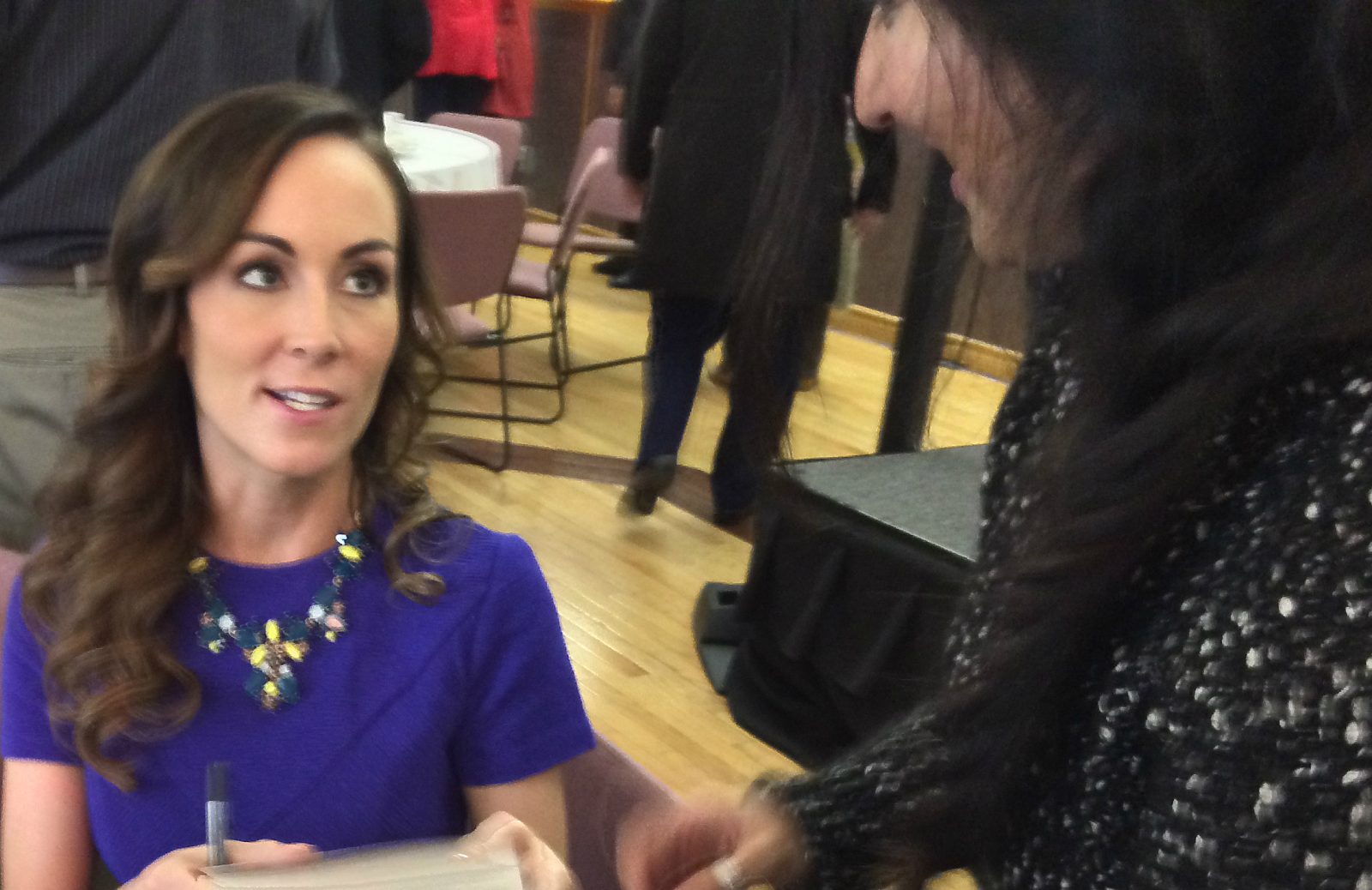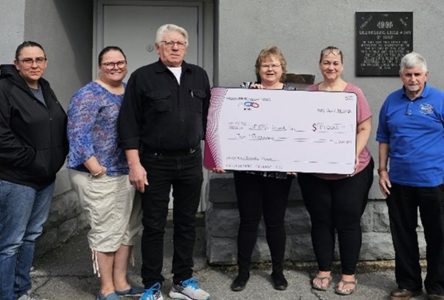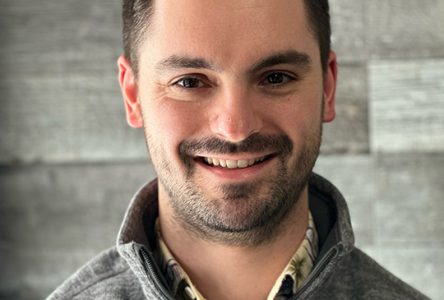CORNWALL, Ontario – Hundreds of people sat in stunned silence as an Alberta woman recounted 15 months of captivity and torture at the hands of Somali kidnappers during a breakfast meeting in Cornwall Wednesday.
The proverbial pin could be heard to drop as Amanda Lindhout, during the Children’s Treatment Centre celebrity walk and breakfast, explained in stark detail the fear, persecution and abuse she endured under the jackboot of teenaged boys who kept her and an Australian photographer in chains.
“Every day I make the decision to forgive…but a lot of days I don’t,” she told audience members in the packed civic complex salons. “Sometimes it is a distant point on the horizon. I feel if I keep doing that, one day forgiveness will be a state I can enjoy all the time.
“I have been given a pretty rare gift. I have been given a second chance at my life.”
Her 15-month ordeal began in the summer of 2008 when, while on assignment as a journalist to document displacement camps in war-torn Somalia, she and others were abducted and held for a $1.5-million ransom.
While in captivity she was repeatedly raped or abused, sometimes as many as 10 times a day, on top of other torture and attacks. Teeth were knocked out, famine lead to much of her hair falling out and her spirit was nearly amputated.
It was during one particular attack at the hands of one of her most heinous abusers, that Lindhout reached her breaking point. But instead of feeling more absolute rage, the opposite took place.
“What naturally rose up inside of me was this tiny seed of compassion,” Lindhout said. “It surprised me, and confused me. It felt like relief from all the anger and the rage I had fully been engaging in for months. It became something I actively looked for.
“These individuals must be some damaged in order to do the things they were doing to me.”
There was an escape attempt, five months into her odyssey, where she and an Australia friend named Nigel used nail clippers to secretly tunnel a hole through bricks and cement to leave the ramshackle home in which they were kept. The duo ran to a nearby mosque where they hoped they could find aid.
Instead their kidnappers pursued them, and entered the mosque and fired their guns into the air while also grabbing for Lindhout and Nigel. A woman, the first Lindhout had seen in months, entered the mosque.
“She came right to me. When she reached me she pulled me into her arms and in English she called me her sister and then she turned to my kidnappers and began to plead with them to let her go,” she said. “They had no patience for this woman’s interference.
“They grabbed me by the ankles and towed me away. But this woman did not give up. She literally through her body on top of mine and held me as tightly as she could and was dragged across the floor with me.”
The two were eventually separated and Lindhout, nearly moved to tears, told audience members she could hear a single gunshot come from within the mosque while she was driven away, back to captivity.
What followed was 10 months of increased terror, chained in darkened room where she could not see her hand in front of her face.
“I lost the sky. I had lost my own name, laughter, light. I was 27 years old in a pitch black room in Somalia with chains on my ankles,” said Lindhout, conceding that her trip to Somalia was ill-advised. “How this fate could be mine was shocking to me.
“They were experiences no human being should have to go through.
I have experienced hunger and starvation and really extraordinary amounts of physical pain and suffering and even torture. (But) physical pain was not the worst. The most difficult times in captivity were when my faith in human decency seemed lost.”
Her trial ended in November 2009 when after months of blood, sweat and tears family members and even strangers had pooled enough money to pay the ransom that resulted in her release.
“I was being held in an animal shed at this point,” she said. “On this afternoon two captors brought in a saw to cut off chains. For weeks they had been threatening to sell Nigel and I. They put us into a vehicle as night fell and we drove for hours.”
When then finally stopped in the desert, amidst of a group of 40 gun-toting men, she was approached.
“In the middle of all that confusion and chaos, one of these men brought me a phone,” she said.
“When I put it to my ear, my mother was on the other end, and she said to me, ‘Amanda you’re free.'”
While recovering in hospital the stark reality of what had happened to her finally hit home.
“I remember what it was like to see myself in a mirror in a hospital. I was missing lots of my hair,” said Lindhout. “I was missing quite a number of my teeth which were knocked out and broken. I really felt like I didn’t know who I was anymore.”
Since her ordeal Lindhout has written a book, started a charitable organization, the Global Enrichment Foundation, which has raised $3 million to help 200,000 people around the world seeking aid and has begun speaking publicly to agencies like the Children’s Treatment Centre who advocate on behalf of those in need – especially children.
“We’re going to leave here feeling a bit more determined and capable of being a force for good in the world,” she told audience members. “Life has a way of guiding us to the next step we will need to be.”



